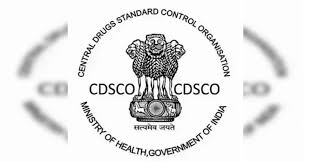Andhra Pradesh has achieved a key milestone in the medical technology sector with the launch of its first Central Drugs Standard Control Organisation (CDSCO)-notified medical device auditing body. The move is expected to significantly ease regulatory burdens for manufacturers operating within the region.
The new body, KIHT Certification Services (KCS), based at the Andhra Pradesh MedTech Zone (AMTZ) in Visakhapatnam, has been authorized by the CDSCO to carry out inspections for Class A and B medical devices, marking a turning point for local manufacturers seeking compliance under India’s Medical Devices Rules.
KCS becomes the 14th such notified body in India, but the first to be operational in both Andhra Pradesh and Telangana. It is housed within the Kalam Institute of Health Technology (KIHT), a government-supported initiative aimed at fostering indigenous innovation in healthcare technologies.
A Regulatory Breakthrough for MedTech in the South
For manufacturers—particularly micro, small, and medium enterprises (MSMEs)—the presence of an in-state notified body represents a considerable logistical and financial advantage. Previously, device makers in Andhra Pradesh had to rely on agencies located outside the region for regulatory inspections, resulting in higher costs and longer approval times.
“The operationalization of KCS within AMTZ streamlines the certification process for medical device firms and makes Andhra Pradesh a more attractive destination for MedTech investment,” said a senior official from the Department of Biotechnology, which oversees KIHT.
Strengthening India’s Quality Infrastructure
Accredited by the National Accreditation Board for Certification Bodies (NABCB) under ISO/IEC 17021-1:2015 and IAF MD 9:2023 standards, KCS is authorized to conduct a wide range of compliance activities. These include ISO 13485 quality management audits, risk management assessments, CE-mark consultancy, and product certification.
The new auditing body is expected to further bolster AMTZ’s role as one of India’s leading medical device manufacturing hubs. Launched in 2017, the MedTech Zone was envisioned as a one-stop ecosystem for research, innovation, testing, and production of medical devices.
Paving the Way for Policy and Industry Collaboration
The formation of KCS reflects a broader shift in India’s regulatory landscape, where policy support and industry partnerships are converging to accelerate healthcare manufacturing. It is also part of the national strategy to reduce dependence on imported devices and enhance domestic capabilities.
According to health ministry sources, there are plans to expand KCS’s scope to eventually include audits for Class C and D medical devices, which would cover more complex and high-risk products such as implantables.
The Road Ahead
As India positions itself as a global hub for affordable and high-quality healthcare devices, Andhra Pradesh’s regulatory leap could serve as a model for other states. For now, the state’s MedTech stakeholders see this development as a timely catalyst for growth and innovation.
“This isn’t just a procedural upgrade—it’s a strategic move that aligns with the vision of self-reliant healthcare manufacturing,” said one KIHT spokesperson. “It brings speed, credibility, and accessibility to our compliance infrastructure.”
And as India’s demand for regulated, certified devices grows, so too will the importance of institutions like KIHT and AMTZ in shaping the next chapter of Indian MedTech.


